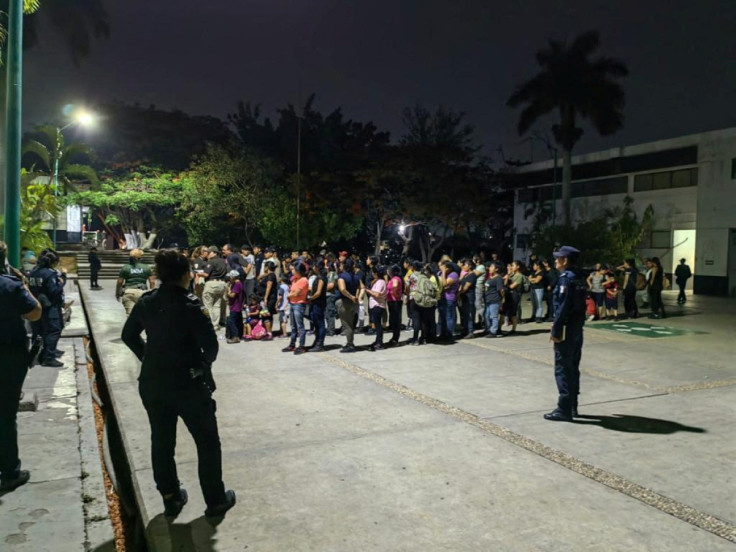
Immigration and Customs Enforcement (ICE) could release some 15,000 migrants from facilities near the border and not take in new ones amid massive cash shortfalls, Axios reported on Thursday.
In need for $700 million Congress has failed to provide, the agency could cut key parts of its budget aimed at dealing with the influx of migrants.
Should the situation continue without changes, ICE could run out of funds for detention by July. There are currently 38,000 people in its custody.
A factor contributing to the strain is the fact that ICE has been assisting its sister agency, Customs and Border Protection.
Immigrants crossing the border are not the only ones who will see these changes, as those coming in through legal means will also feel the effects of the DHS funding drain.
Amid the lack of funds, U.S. Citizenships and Immigration Services (USCIS) will have to reallocate agents to the border to screen migrants for asylum, the DHS spokesperson said.
The Department of Homeland Security continues asking Congress for emergency funds, but current infighting has made it unlikely any breakthrough comes soon.
A bipartisan border security deal that was rejected by Republicans in Congress last week included more than $7 billion in funding for ICE. Overall, more than $15 billion would have been destined to border security.
Democrats removed the border-related part of the bill and have sought to move forward with a wartime aid package instead, but Republicans in the House have rejected that plan as well, seeking more concessions on border-related measures.
Without the new funding, the DHS will not only be unable to deal with an incoming influx of migrants, but it will also be unable to maintain the status quo, according to NBC News. Soon, this department's agencies will have to move resources from other areas to scrape by.
Fewer new hires, less arrests, detentions and deportations of immigrants, and decreased investment in technology to detect migrants and fentanyl smuggling are just some of the expected outcomes in the absence of this bill.
The federal government has also given around $370 million to cities struggling with migrants, but they have not received further federal support since last fall. Without more congressional funding, these cities might start to "suffer," a DHS spokesperson told NBC News.
Democratic mayors in these cities have reportedly pleaded with the Biden administration for more help to house and educate, provide medical care, and find work authorization for the tens of thousands of new migrants who have arrived since summer 2022. The now scrapped bipartisan border bill would have included such aids.
© 2024 Latin Times. All rights reserved. Do not reproduce without permission.
U.S. government criticized for conducting new deportation flight to Haiti despite ongoing violence
Nadine Menendez, facing bribery charges along with husband Bob, has breast cancer
Venezuelan hardliner labels Colombian FM a 'puppet of the empire' over discussions on power transition
DeSantis signs bill removing climate change as a priority in Florida's energy policy
